Related Research Articles

Sheikh Mujibur Rahman, often shortened as Sheikh Mujib or Mujib, also widely known as Bangabandhu, was a Bangladeshi politician, statesman and the founding leader of the People's Republic of Bangladesh. He first served as the titular president of the Provisional Government of Bangladesh between April 1971 and January 1972. He then served as Prime Minister of Bangladesh from the Awami League between January 1972 and January 1975. He finally served as President again during BAKSAL from January 1975 till his assassination in August 1975. In 2011, the 15th constitutional amendment in Bangladesh referred to Sheikh Mujib as the Father of the Nation who declared independence; these references were enshrined in the fifth, sixth, and seventh schedules of the constitution.
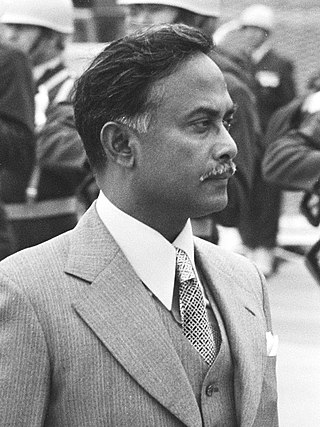
Lt. General Ziaur RahmanBUHJ, was a Bangladeshi military officer and politician who served as the President of Bangladesh from 1977 to 1981. He was assassinated on 30 May 1981 in Chittagong in an coup d'état staged by some of his colleagues in army.
Independence of Bangladesh was declared on 26 March 1971, celebrated as Independence Day, from Pakistan. The Independence Day of Bangladesh is celebrated on 26 March when Sheikh Mujibur Rahman declared the Independence of Bangladesh. The Bangladesh Liberation War started on 26 March and lasted till 16 December 1971 which is celebrated as Victory Day in Bangladesh. There is a dispute along partisan line on who declared the Independence of Bangladesh. The Awami League claim Sheikh Mujibur Rahman while the Bangladesh Nationalist Party claim it was Ziaur Rahman.

Khondaker Mostaq Ahmad was a Bangladeshi politician. He was the President of Bangladesh from 15 August to 6 November 1975, after the assassination of Sheikh Mujibur Rahman. He was part of the conspiracy that brought about the assassination of Sheikh Mujibur Rahman on 15 August 1975. He took on the role of president immediately after the assassination, praised the assassins as "sons of the sun" and put cabinet ministers loyal to Sheikh Mujibur Rahman in jail.

Tajuddin Ahmad was a Bangladeshi politician and statesman. He led the Provisional Government of Bangladesh as its prime minister during the Bangladesh Liberation War in 1971 and is regarded as one of the most instrumental figures in the birth of Bangladesh.
Shah Azizur Rahman was a Bangladeshi politician who served as the Prime Minister of Bangladesh. However, he was the subject of considerable controversy for his collaboration with the Pakistan Army against the struggle to Independence of Bangladesh.

Abu Sayeed Chowdhury was a jurist and the President of Bangladesh. Besides that, he held the positions of the Chairmen of the United Nations Commission on Human rights, the vice-chancellor of the University of Dhaka, the Foreign Minister of Bangladesh and the first Bangladesh High Commissioner to the UK.

Maulana Azad College, formerly Islamia College, is a public institute of liberal arts, commerce and science in India, located in central Kolkata, West Bengal, India. The college is fully government-administered. It is located near the junction of Rafi Ahmed Kidwai Road and SN Banerjee Road, popularly called "Lotus crossing".
Abdul Gaffar Choudhury was a Bangladeshi-born British writer, journalist, columnist, political analyst and poet. He wrote the lyrics to "Amar Bhaier Rokte Rangano", a widely celebrated song commemorating the Bengali Language Movement. He was awarded Bangla Academy Literary Award in 1967, Ekushey Padak in 1983, and Independence Day Award in 2009.

Ataur Rahman Khan was a Bangladeshi lawyer, politician and writer, and served as Chief Minister of East Pakistan from 1 September 1956 – March 1958, and as the Prime Minister of Bangladesh from 30 March 1984 to 9 July 1986.
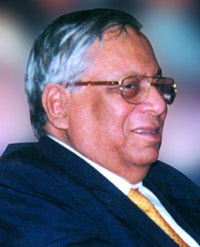
Humayun Rasheed Choudhury was a Bangladeshi career diplomat and Speaker of the Bangladesh National Parliament from 1996 to 2001. He was elected president of the 41st session of the UN General Assembly in 1986. He was awarded Independence Day Award in 2018 posthumously by the Government of Bangladesh.
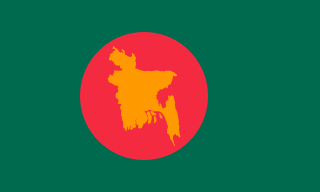
The Independence Day of Bangladesh, which takes place on 26 March, is a Bangladeshi national holiday. It commemorates the country's declaration of independence from Pakistan in the early hours of 25 March 1971.
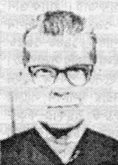
Phani Bhushan Majumder was an Awami league politician and a former minister of the Government of Bangladesh.

Muhammad Yusuf Ali was a Bangladesh politician. He was the first minister for Education and Cultural Affairs in the first cabinet of Bangladesh.
M. A. Aziz was an Awami League politician and the former Member of the National Assembly of Pakistan from Kotwali-Double Mooring He was also a good friend and an advisor of Sheikh Mujib, Chittagong.
The non-cooperation movement of 1971 was an historic movement in then East Pakistan by the Awami League and the general public against the military government of Pakistan in March of that year. After the announcement of the suspension of the session of the National Assembly of Pakistan on March 1, the spontaneous movement of the people started, but officially on the call of Sheikh Mujibur Rahman, the non-cooperation movement started on March 2 and continued until March 25. The movement lasted for a total of 25 days. The main objective of this movement was to ensure the autonomy of East Pakistan from the central government of Pakistan. During this period, the control of the central government of West Pakistan over the civilian administration of East Pakistan was almost non-existent. At one stage of the movement, the whole of East Pakistan except the cantonments was practically under the command of Sheikh Mujibur Rahman.
Bhupati Bhushan Chowdhury was a Bangladesh Politician and businessman. He was awarded Independence Day Award in 2018 posthumously by the Government of Bangladesh.
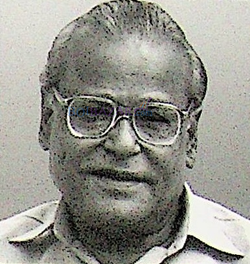
Mafiz Ali Chowdhury (1919–1994) was a Bangladeshi politician who was part of the Bangladesh Awami League and a former Minister and Member of Parliament.

Mahbubul Huq was a Member of the 3rd National Assembly of Pakistan as a representative of East Pakistan.
References
- ↑ Mujibur Rahman, Sheikh (2012). The unfinished memoirs. New Delhi, India. p. 71. ISBN 978-0-670-08546-0. OCLC 840484565.
- 1 2 3 "Subhash Bose and radical nationalism of 1971 | New Age". www.newagebd.net. Retrieved 2022-12-16.
- ↑ "LIST OF MEMBERS OF THE 4TH NATIONAL ASSEMBLY OF PAKISTAN FROM 1965-1969" (PDF). na.gov.pk. Retrieved 19 January 2021.